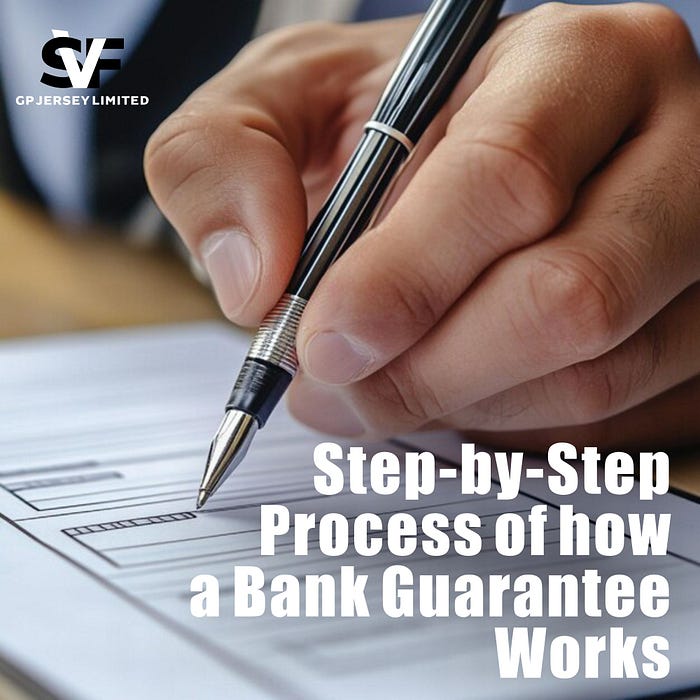Quick summary (for busy readers)
A bank guarantee is a written promise from a bank to pay your counterparty if you fail to meet an agreed obligation (like paying for goods or finishing a project). It reduces the counterparty’s risk so deals can move forward. To get one, you apply through a bank, share documents, pay a fee, and the bank issues the guarantee under standard rules (often URDG 758). There are different types, like bid bonds, performance guarantees, and advance payment guarantees. Costs depend on your risk, the amount, and the term. Use cases range from construction and energy to import–export and government tenders across the US, UK, Canada, China, Vietnam, and Brazil.
Primary keywords used in this guide: bank guarantee, what is a bank guarantee, types of bank guarantees, performance guarantee, bid bond, financial guarantee, how to get a bank guarantee, bank guarantee requirements, bank guarantee fees, URDG 758, advance payment guarantee, import export guarantee, construction guarantee, tender guarantee, standby letter of credit vs bank guarantee.

What is a bank guarantee?
A bank guarantee is a financial instrument provided by a bank or financial institution that ensures the liabilities of a debtor will be met. In other words, if a party involved in a contract fails to fulfill their financial obligations, the bank will cover the loss. This instrument is particularly useful in international trade and other business transactions where there is a need for assurance that contractual duties will be honored.
How Does a Bank Guarantee Work?
The process of obtaining a bank guarantee involves three parties: the applicant, the beneficiary, and the issuing bank. The applicant requests a guarantee from the bank, which then assesses the applicant’s creditworthiness. If approved, the bank issues the guarantee to the beneficiary, assuring them that the applicant’s obligations will be met. Should the applicant fail to fulfill their contractual commitment.
Types of Bank Guarantees
- 1. Performance Bond Guarantee:
- Purpose: Serves as collateral to ensure that a party fulfills its contractual obligations.
- Scenario: If a service provider or supplier fails to deliver goods or services as agreed upon in the contract, the performance bond guarantee covers the buyer’s costs.
- Common Use: Often seen in construction projects, where contractors must meet specific performance milestones.
- 2. Advance Payment Guarantee:
- Purpose: Acts as collateral for reimbursing the buyer’s advance payment.
- Scenario: If the seller does not supply the specified goods or services per the contract, the advance payment guarantee ensures the buyer’s funds are returned.
- Common Use: Frequently employed in international trade and large-scale purchases.
- 3. Confirmed Payment Guarantee:
- Purpose: Provides assurance to the seller that payment will be made by the buyer.
- Scenario: The bank confirms the buyer’s payment commitment, ensuring the seller receives the agreed-upon amount.
- Common Use: Used in cross-border transactions to mitigate payment risk.
- 4. Security Bond Guarantee:
- Purpose: Offers security against potential losses.
- Scenario: If a party defaults on its obligations, the security bond guarantee compensates the affected party.
- Common Use: Seen in various contexts, including real estate transactions and government contracts.
KEY TAKEAWAY:
· A bank guarantee is a promise from a lending institution to cover one party’s financial obligations if the other party doesn’t fulfill their contractual responsibilities.
· Bank guarantees help businesses acquire goods, engage in international trade, and can increase access to cash flow by reducing perceived risk in transactions.
· There are two main types of bank guarantees: tender guarantees, which protect buyers if suppliers don’t fulfill contract terms, and performance guarantees, which cover obligations specified in contracts.
· In the U.S., banks typically issue standby letters of credit instead of bank guarantees, serving a similar function.
· The SEC has cautioned investors to be vigilant about scams involving misleading “bank guarantee” schemes labeling them as “Prime Bank” financial instruments.

How a bank guarantee works (step by step)
Step 1: Know What Type of Guarantee You Need
Before you approach the bank, know the nature and purpose of the guarantee. Read the contract or terms of the tender first to confirm whether it is a performance guarantee, a financial guarantee or a bid bond guarantee.
Step 2: Choose a Bank
Not all banks provide bank guarantees and can have different rates, fees, and processes. Choose the bank which has a good reputation and great business relationship. Banks are more favourable to companies with an existing account and credit history.
Step 3: Documents Checklist
Each bank will operate differently, but generally, the following documents will always be required:
- Completed the bank guarantee application form with the bank
- Request letter clearly stating the guarantee type, value and beneficiary
- Copy of the underlying contract or agreement
- Board resolution (Company)
- KYC documents (PAN, GST, incorporation certificate, etc).
- Audited financial statements or proof of income.
- Documentation for collateral/security (if required).
Step 4: Submit the Application to the Bank
When you are ready with all of the documents, you need to apply to your relationship manager or the bank’s trade finance department. Make sure all the information is correct, particularly the beneficiary’s name, guarantee amount, and validity.
Step 5: Bank Reviews and Approves the Application
The bank will review your financial status, previous transactions, credit rating, and risk of the guarantee. This will include:
- credit appraisal (especially if the guarantee amount is larger)
- An internal approval by the credit or risk departments
- a legal review of the guarantee terms
Depending on the amount of the guarantee and your risk profile, this may take a few additional days up to several weeks.
Step 6: Provide Collateral or Margin (If Required)
Based on the review, the bank may require:
- Cash margin
- Lien on a fixed deposit
- Collateral on a property
- Using an existing credit limit amount (if available)
Once the collateral has been established and the documentation is confirmed, the bank will then proceed to the point of issuing the guarantee.
Step 7: Issuing of the Bank Guarantee
Once the bank has the approvals and collateral security, it will issue the guarantee document. The guarantee document is typically addressed to the beneficiary and will include:
- Guarantee number
- Guaranteed amount
- Validity of the guarantee
- Conditions under which payment will be made
- Details of the applicant and beneficiary
Either you (the applicant) or the beneficiary will receive the original guarantee letter, in either hard copy form or sent via SWIFT for international deals.
Step 8: Notify the Beneficiary
Once the bank guarantee has been issued, you should notify the beneficiary as soon as possible. Send them the original copy of the guarantee and check that all the terms agree with the terms of the agreement. Make sure to follow up promptly if the beneficiary wishes to make amendments or seek clarification.
Step 9: Track and Renew (If Needed)
Keep track of when your bank guarantee expires. If your project goes beyond the date of expiry, you need to request a renewal of the bank guarantee 2 or 3 weeks in advance of the expiry date. If you do not renew in time, this can lead to defaults, disputes, etc.
Common mistakes to avoid while applying for a bank guarantee
- Mistakenly entering the incorrect beneficiary name can make the guarantee null and void.
- Not realising the validity and claim periods can lead to unintended and avoidable defaults.
- Not collecting the original guarantee or release letter can create delays in closure and the return of collateral.
- Missing bank fees, commissions, and renewals can impact your cash flow.
- Not renewing or extending the guarantee expiry date can lead to breaches of contract
Real-world case
United States — Solar EPC Performance Guarantee
A mid-size solar EPC company in Arizona won a $15 million municipal solar project. The city required a 10% performance guarantee. The company’s bank issued a $1.5 million performance guarantee under URDG 758. The guarantee gave the city comfort to award the contract. The project closed on time, and the guarantee expired 30 days after final acceptance.
Advantages of Bank Guarantees
Commercial banks provide bank guarantees to a large number of corporate clients. These bank guarantees provide significant revenue to commercial banks. These guarantees are available to corporate customers because of some benefits. An indicative list of some of these benefits has been mentioned below:
1. Lower Costs: The main advantage of a bank guarantee is that it is a cost-effective way to improve the creditworthiness of a business. This is because the fees charged by the banks are generally not very high.
Banks generally charge anywhere between 0.5% to 1% of the amount that they guarantee. Thus, the transaction costs are low and not an impediment to the overall conduct of business. These lower costs enable companies to produce goods and services at a better price.
2. Better Cash Flow Management: Another important factor to note is that bank guarantees eliminate the need for making any advance payments. Since the sellers are assured that they will be paid promptly once they deliver goods or services, they do not ask for advance payments. This helps the buying company to better manage its cash flow.
Since no advance payments are required, the working capital requirement is reduced and this positively impacts the overall cost of capital. Hence the cost of operations for the business is lowered because of better cash flow management which is made possible by bank guarantees.
3. Increased Opportunities: There are a lot of opportunities that are not available to small and medium enterprises because of their lack of creditworthiness. The counterparty is not sure of the financial or operational capability of the corporations and hence is not willing to conduct business with them. Since bank guarantees replace the creditworthiness of the corporation with that of the bank, the concern of the counterparty does not remain valid. Small and medium businesses have witnessed a drastic increase in the opportunities available to them as a result of bank guarantees.
4. Streamlined Process: Businesses that avail bank guarantees on a regular basis are aware of the fact that the process to obtain a bank guarantee is quite streamlined. Once the bank has conducted due diligence on the corporation, they are able to provide a bank guarantee within a couple of days. Hence, the process is not lengthy or complicated. It is, in fact, considered to be easier as compared to loans and overdrafts. This is one of the reasons why corporations prefer to obtain bank guarantees.
5. Signaling Effect: The fact that commercial banks consider a corporation to be creditworthy speaks volumes about the way in which finances are managed in that corporation. Thus, the issuance of a bank guarantee by a reputed bank is often taken as a positive signal by all the prospective creditors in the market. The benefit of this signaling effect is that companies are able to obtain funds at lower costs because of the positive word of mouth in the market.
Disadvantages of Bank Guarantees
There are certain disadvantages that are associated with bank guarantees as well. It is important for corporations as well as commercial banks to understand these cons before making any final decision.
1.Difficult to Obtain: The process of obtaining bank guarantees is seamless only if a business has very strong financials, to begin with. However, if a business has unpredictable cash flow, then it can quite difficult to obtain a bank guarantee. Since unsecured bank guarantees are similar to bank loans, the due diligence is carried out at the same level. Hence, businesses whose financial position is less than ideal find it quite difficult to obtain these guarantees.
2. Collateral Required: In many cases, banks ask for significant collateral which almost covers the cost of the bank guarantee. This makes it difficult for businesses to avail of such guarantees. The only benefit remains that businesses do not have to actually liquidate their investment in order to obtain funding. Instead, they can use them as collateral to obtain funding. However, if a business does not have the required collateral, then obtaining a bank guarantee becomes difficult.
3. Regulatory Hassles: In many parts of the world, there have been frauds involving bank guarantees. In such countries, the regulators have come up with a very strict set of rules which need to be followed before a bank guarantee can be issued. This is because if bank guarantees are issued without due diligence by one bank, it can destabilize that bank which in turn can destabilize the entire banking system.
In such countries, there are too many regulatory hassles for obtaining bank guarantees. Hence, banks are not willing to offer their guarantees in such countries and even corporations refrain from availing of them.
After all the points are considered, one can say that bank guarantees provide more advantages than disadvantages. This is the reason why they are extremely popular amongst the business community in most parts of the world.
What Is the Financial Instrument for a Bank Guarantee?
The financial instrument used in a bank guarantee is called a banker’s acceptance.
Do Banks in the U.S. Issue Bank Guarantees?
U.S. banks typically issue standby letters of credit instead of bank guarantees, serving the same purpose.
Bottom Line
Guarantees help protect international trade relationships by mitigating risks if a contract falls through, suppliers don’t perform according to a contract’s terms, or a buyer won’t pay for goods. While bank guarantees are not common in the U.S., you should be able to get a similar guarantee via a standby letter of credit.
Conclusion
Bank guarantees remain one of the most powerful tools for reducing financial risk in global and domestic transactions. international trade, these instruments build trust between parties and enable large, high-value contracts to move forward with confidence.
The process of obtaining a bank guarantee can seem complex at first — requiring careful preparation, documentation, and sometimes collateral — but once in place, it provides businesses with credibility, better cash flow management, and access to new opportunities. Small and medium enterprises, in particular, benefit from the signaling effect of a bank guarantee, as it demonstrates financial reliability to partners, investors, and governments.
Of course, challenges remain: businesses with weaker financials may struggle to secure one, and regulatory hurdles in some countries can make the process lengthy. However, the benefits often outweigh the drawbacks. Bank guarantees lower transaction costs, unlock new markets, and allow companies to confidently pursue larger contracts than they could without this backing.
While U.S. banks usually issue standby letters of credit instead of traditional guarantees, the function is essentially the same — providing assurance that contractual commitments will be fulfilled. Globally, the rules under URDG 758 standardize these instruments, making them widely recognized and accepted across borders, from the UK and Canada to China, Vietnam, and Brazil.
Unlock the Power of Global Finance with SVF GP (Jersey) Limited.
We specialize in structured project finance, SBLCs, Bank Guarantees, and monetization programs, helping investors and developers achieve their funding goals securely and efficiently.
Contact: StructuredFinance@svfgpltd.com
Visit: www.svfgpltd.com
SVF GP Limited — Empowering Ambition. Enabling Success.


Pingback: How to Work with an SBLC Provider - SVF GP – SBLC, Bank Guarantees & Finance Experts
Pingback: Best Bank Guarantee Providers in 2025 - SVF GP – SBLC, Bank Guarantees & Finance Experts
Pingback: What is a Bank Guarantee? — Definition & Basic Explanation - SVF GP – SBLC, Bank Guarantees & Finance Experts
Pingback: Top 9 Reasons Bank Instrument Transactions Fail and How to Avoid Them - SVF GP – SBLC, Bank Guarantees & Finance Experts